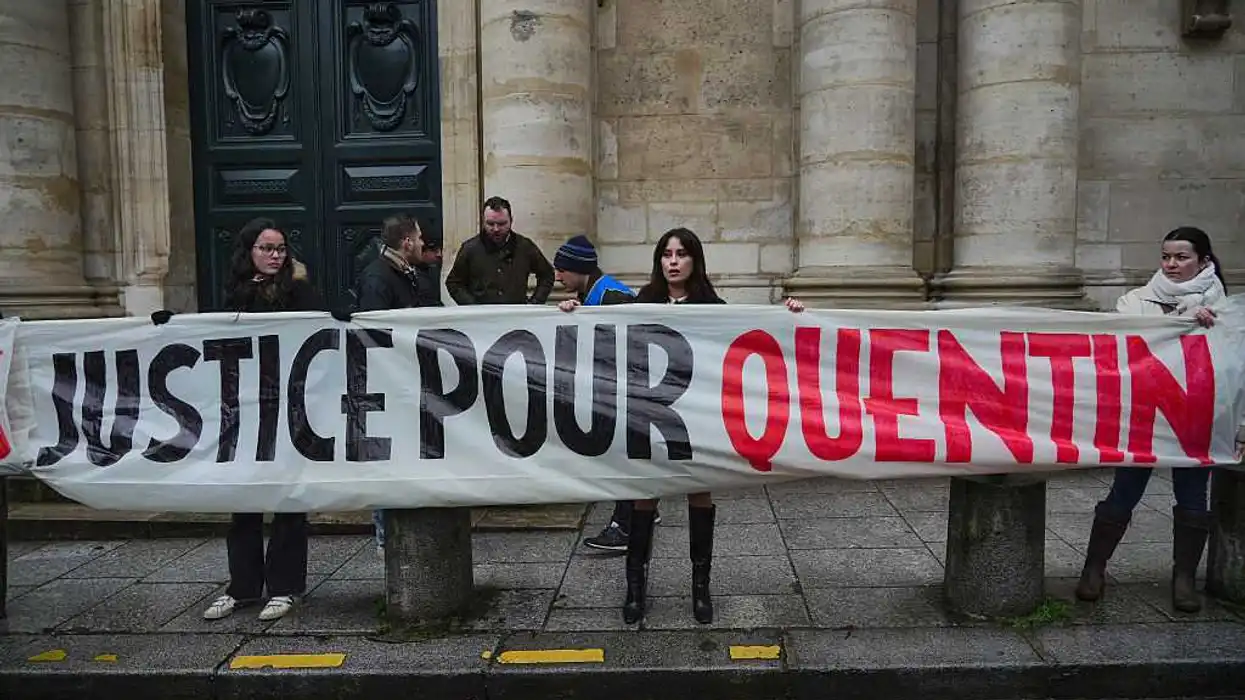
© 2026 Blaze Media LLC. All rights reserved.
Controversial Cybersecurity Legislation Amended But Many Say Privacy Still a Concern
April 25, 2012
“We cannot stand by silently and let a federal law trump all of the federal and state laws that protect personal privacy.
The privacy concerns voiced in recent weeks over the Cyber Intelligence Sharing Protection Act have been amended to an extent before the proposed legislation heads into a House vote at the end of this week.
(Related: CISPA: How the new cyber-security bill isn't SOPA but some say it's 'just as bad')
The bill was drafted with Representatives Mike Rogers (R-Mich.) and Dutch Ruppersberger (D-Md.) as co-sponsors in an effort to help provide a legal framework for business and the government to share information about cyberattacks. But, as the Huffington Post notes, online privacy advocates and civil liberties groups stated the language about the information on consumers businesses could share was too broad.

One of the amendments was to restrict the government's use of information it received from businesses to "cybersecurity, investigating and prosecuting cyber crime, protecting 'individuals from death or serious bodily harm,' protecting minors from child pornography, and ensuring national security."
Of the amendments, the Center for Democracy & Technology, which was opposed to much of this legislation, said in a statement the progress was good but still not enough:
"In sum, good progress has been made. The Committee listened to our concerns and has made important privacy improvements and we applaud the Committee for doing so. However, the bill falls short because of the remaining concerns -- the flow of internet data directly to the NSA and the use of information for purposes unrelated to cybersecurity. We support amendments to address these concerns. Recognizing the importance of the cybersecurity issue, in deference to the good faith efforts made by Chairman Rogers and Ranking Member Ruppersberger, and on the understanding that amendments will be considered by the House to address our concerns, we will not oppose the process moving forward in the House. We will focus on the amendments and subsequently on the Senate."
The Huffington Post reports Rogers stating he is pleased with the amendments and that he believes it will have enough support to pass in this Friday's House vote.
It is still not without its opponents. The Electronic Frontier Foundation maintains its discontent over the proposed legislation, calling some of the amdendments "meaningless." It states, "the immunity exemptions and weak federal liability combine to create a bill that allows forspying on users who are unable to hold companies and the government accountable."
Another interesting, perhaps less expected, opponent is the American Library Association. In a statement ALA President Molly Raphael said "The ALA has long supported strong privacy protections as part of our community’s larger commitment to the First Amendment and civil liberties,” said Raphael. “We cannot stand by silently and let a federal law trump all of the federal and state laws that protect personal privacy. This is especially so when a bill like H.R. 3523 allows for an excessive amount of information that could be shared between the private sector and the government.
“We need balance between what our country must do for cybersecurity and the privacy values that we must protect,” said Raphael.
Presidential hopeful Ron Paul has also come out against CISPA, stating it would create a "big brother" culture. Listen to Paul's thoughts on CISPA:
A White House official said earlier this week there is a need for cybersecurity legislation, but the Guardian reports as a whole, the Obama administration is opposed:
Alec Ross, a senior adviser for innovation to Hillary Clinton, reiterated the administration's opposition to the proposals in more explicit language than previous statements from officials."The Obama administration opposes Cispa," he told the Guardian. "The president has called for comprehensive cybersecurity legislation. There is absolutely a need for comprehensive cybersecurity legislation.
"[But] part of what has been communicated to congressional committees is that we want legislation to come with necessary protections for individuals."
The bill does have widespread bipartisan support in Congress and among many businesses and tech companies. The Huffington Post notes Rogers saying there is a reason for the support it is receiving in the private sector and that's because they "need help" and are "absolutely under siege.”
Want to leave a tip?
We answer to you. Help keep our content free of advertisers and big tech censorship by leaving a tip today.
Want to join the conversation?
Already a subscriber?
more stories
Sign up for the Blaze newsletter
By signing up, you agree to our Privacy Policy and Terms of Use, and agree to receive content that may sometimes include advertisements. You may opt out at any time.
Related Content
© 2026 Blaze Media LLC. All rights reserved.
Get the stories that matter most delivered directly to your inbox.
By signing up, you agree to our Privacy Policy and Terms of Use, and agree to receive content that may sometimes include advertisements. You may opt out at any time.






